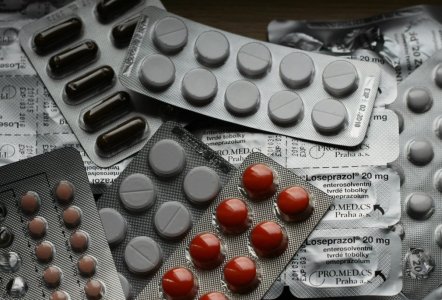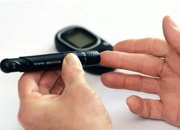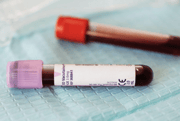Are the medications you take secretly raising your risk of heat stroke? Find out which ones to watch out for
By
Veronica E.
- Replies 0
Disclaimer: The information provided in this article is for educational purposes only and is not intended as a substitute for professional medical advice, diagnosis, or treatment. Always consult your physician or other qualified healthcare providers with any questions you may have regarding a medical condition or before making any changes to your health regimen.
As summer’s heat ramps up across the country, many of us are doing our best to stay cool—dusting off wide-brimmed hats, cranking up the air conditioning, and sipping iced tea by the fan.
But there might be something in your medicine cabinet that could quietly be making the heat more dangerous: your prescriptions.
That’s right—some common medications can interfere with the body’s ability to regulate temperature, putting older adults especially at greater risk for heat exhaustion and heat stroke.
And with heat waves sweeping across the US, this is something worth paying close attention to.
Here’s a closer look at which medications pose heat-related risks, why they have this effect, and how you can protect yourself or your loved ones while staying cool this season.

How medications can interfere with heat regulation
Our bodies naturally cool down through sweating, proper blood flow, and thirst cues. But some medications can disrupt this process.
Certain drugs may limit sweating, make you feel less thirsty, or even raise your core body temperature.
Dr. Christina Inteso, a clinical pharmacy specialist, explains, “Knowing that this can happen is the first step. From there, you can monitor your body for symptoms.”
Dr. Michael Levine, an emergency medicine physician, adds, “If you’re not able to sweat, you lose one of your body’s normal mechanisms to cope with getting hot.”
Also read: Migraine relief from a drive-thru? Fans claim this go-to order does the trick
The types of medications that increase heat risks
Here are the most common types of medications that can make you more sensitive to heat:
1. Antidepressants
Selective serotonin reuptake inhibitors (SSRIs) and tricyclic antidepressants (TCAs) are often prescribed to older adults. These medications can interfere with body temperature regulation and lead to dehydration—especially if they increase sweating or reduce thirst.
2. Antihistamines
Used to treat allergies, drugs like diphenhydramine (Benadryl), promethazine, and doxylamine can suppress your ability to sweat. This reduces the body’s ability to cool off, especially dangerous on hot days.
3. Stimulants
Medications for attention deficit hyperactivity disorder (ADHD), like amphetamines, stimulate the central nervous system and can cause your body to heat up—whether or not you feel overstimulated.
4. Beta-blockers
These drugs help control high blood pressure and heart issues, but they also limit your ability to sweat and lower your blood pressure, which can increase your risk of fainting in the heat.
Also read: Millions at Risk: Could Your Blood Clot Medication Be Doing More Harm Than Good?
5. Diuretics (water pills)
While effective at reducing fluid buildup, diuretics can also leave you dehydrated by increasing urination. This can lead to dangerous fluid loss if not carefully managed in hot weather.
6. ACE inhibitors
These medications can dull your sense of thirst and raise the risk of fainting or dehydration. That’s a tricky combo when you're outdoors in high heat.
7. Thyroid medications
Drugs like levothyroxine, used for thyroid hormone replacement, may increase body temperature and sweating—putting users at a higher risk for dehydration in summer.
8. Antipsychotics
Used for conditions like schizophrenia, bipolar disorder, or dementia, these medications can impair temperature regulation and reduce thirst or sweating.
Also read: Accidentally took expired medication? Learn which pills could be most harmful to you
Other medications to be cautious about
Other drugs—including some anti-nausea meds, Parkinson’s disease treatments, and over-the-counter sleep aids—can also interfere with the body’s ability to stay cool. If you’re unsure about a particular medication, don’t guess—check in with your doctor or pharmacist.
How to protect yourself in the heat
The most important thing to remember is: Do not stop any medication without talking to your doctor.
Sudden withdrawal could pose serious risks. Instead, follow these summer safety tips:
Stay indoors during peak heat
Try to stay inside between 10 a.m. and 4 p.m., when temperatures are typically highest. If you must go out, dress lightly, wear a hat, and bring a portable fan if possible.
Hydrate regularly
Drink water often—even if you’re not thirsty. If you have a fluid restriction for heart or kidney issues, ask your doctor for summer hydration guidance.
Wear the right clothing
Loose, light-colored clothes help your body stay cool. Don’t forget sunscreen and sunglasses.
Listen to your body
If you feel dizzy, weak, or nauseous, get out of the heat immediately. Don’t try to push through—heat exhaustion can come on quickly and lead to serious complications.
Use cooling aids
If you don’t have air conditioning, spend time in places that do, like libraries or shopping malls. Cool showers and wet washcloths can also lower your body temperature.
Talk to your doctor
Schedule a summer check-in with your doctor or pharmacist. They can assess your medications and offer advice tailored to your needs.
Also read: Is America taking too much medicine—and paying the price?
Know the signs of heat illness
Heat exhaustion signs include heavy sweating, clammy skin, a weak pulse, dizziness, and fainting.
Heat stroke is more serious and includes high body temperature (above 103°F), confusion, and even unconsciousness.
If you or someone else shows signs of heat stroke, call 911 immediately.

Have you experienced heat-related symptoms while on medication? What do you do to stay cool in extreme weather? Share your stories or questions in the comments below. Your experience could help someone else in our GrayVine community stay safe this season.
As summer’s heat ramps up across the country, many of us are doing our best to stay cool—dusting off wide-brimmed hats, cranking up the air conditioning, and sipping iced tea by the fan.
But there might be something in your medicine cabinet that could quietly be making the heat more dangerous: your prescriptions.
That’s right—some common medications can interfere with the body’s ability to regulate temperature, putting older adults especially at greater risk for heat exhaustion and heat stroke.
And with heat waves sweeping across the US, this is something worth paying close attention to.
Here’s a closer look at which medications pose heat-related risks, why they have this effect, and how you can protect yourself or your loved ones while staying cool this season.

Staying safe in the summer heat means knowing how your medications may affect your body’s ability to cool down. Image Source: Pexels / Pixabay.
How medications can interfere with heat regulation
Our bodies naturally cool down through sweating, proper blood flow, and thirst cues. But some medications can disrupt this process.
Certain drugs may limit sweating, make you feel less thirsty, or even raise your core body temperature.
Dr. Christina Inteso, a clinical pharmacy specialist, explains, “Knowing that this can happen is the first step. From there, you can monitor your body for symptoms.”
Dr. Michael Levine, an emergency medicine physician, adds, “If you’re not able to sweat, you lose one of your body’s normal mechanisms to cope with getting hot.”
Also read: Migraine relief from a drive-thru? Fans claim this go-to order does the trick
The types of medications that increase heat risks
Here are the most common types of medications that can make you more sensitive to heat:
1. Antidepressants
Selective serotonin reuptake inhibitors (SSRIs) and tricyclic antidepressants (TCAs) are often prescribed to older adults. These medications can interfere with body temperature regulation and lead to dehydration—especially if they increase sweating or reduce thirst.
2. Antihistamines
Used to treat allergies, drugs like diphenhydramine (Benadryl), promethazine, and doxylamine can suppress your ability to sweat. This reduces the body’s ability to cool off, especially dangerous on hot days.
3. Stimulants
Medications for attention deficit hyperactivity disorder (ADHD), like amphetamines, stimulate the central nervous system and can cause your body to heat up—whether or not you feel overstimulated.
4. Beta-blockers
These drugs help control high blood pressure and heart issues, but they also limit your ability to sweat and lower your blood pressure, which can increase your risk of fainting in the heat.
Also read: Millions at Risk: Could Your Blood Clot Medication Be Doing More Harm Than Good?
5. Diuretics (water pills)
While effective at reducing fluid buildup, diuretics can also leave you dehydrated by increasing urination. This can lead to dangerous fluid loss if not carefully managed in hot weather.
6. ACE inhibitors
These medications can dull your sense of thirst and raise the risk of fainting or dehydration. That’s a tricky combo when you're outdoors in high heat.
7. Thyroid medications
Drugs like levothyroxine, used for thyroid hormone replacement, may increase body temperature and sweating—putting users at a higher risk for dehydration in summer.
8. Antipsychotics
Used for conditions like schizophrenia, bipolar disorder, or dementia, these medications can impair temperature regulation and reduce thirst or sweating.
Also read: Accidentally took expired medication? Learn which pills could be most harmful to you
Other medications to be cautious about
Other drugs—including some anti-nausea meds, Parkinson’s disease treatments, and over-the-counter sleep aids—can also interfere with the body’s ability to stay cool. If you’re unsure about a particular medication, don’t guess—check in with your doctor or pharmacist.
How to protect yourself in the heat
The most important thing to remember is: Do not stop any medication without talking to your doctor.
Sudden withdrawal could pose serious risks. Instead, follow these summer safety tips:
Stay indoors during peak heat
Try to stay inside between 10 a.m. and 4 p.m., when temperatures are typically highest. If you must go out, dress lightly, wear a hat, and bring a portable fan if possible.
Hydrate regularly
Drink water often—even if you’re not thirsty. If you have a fluid restriction for heart or kidney issues, ask your doctor for summer hydration guidance.
Wear the right clothing
Loose, light-colored clothes help your body stay cool. Don’t forget sunscreen and sunglasses.
Listen to your body
If you feel dizzy, weak, or nauseous, get out of the heat immediately. Don’t try to push through—heat exhaustion can come on quickly and lead to serious complications.
Use cooling aids
If you don’t have air conditioning, spend time in places that do, like libraries or shopping malls. Cool showers and wet washcloths can also lower your body temperature.
Talk to your doctor
Schedule a summer check-in with your doctor or pharmacist. They can assess your medications and offer advice tailored to your needs.
Also read: Is America taking too much medicine—and paying the price?
Know the signs of heat illness
Heat exhaustion signs include heavy sweating, clammy skin, a weak pulse, dizziness, and fainting.
Heat stroke is more serious and includes high body temperature (above 103°F), confusion, and even unconsciousness.
If you or someone else shows signs of heat stroke, call 911 immediately.
Key Takeaways
- Certain common medications—including antidepressants, antihistamines, stimulants, beta-blockers, diuretics, ACE inhibitors, thyroid medications, and antipsychotics—can raise your risk of heat stroke and heat exhaustion.
- These medications can reduce sweating, dull thirst, or raise core body temperature, making it harder to regulate heat in summer.
- Doctors recommend staying on your medications but taking extra steps like staying indoors, hydrating, dressing appropriately, and monitoring your symptoms during hot weather.
- Never stop a prescription without medical advice—always consult your healthcare provider to ensure you’re staying safe during heat waves.
Have you experienced heat-related symptoms while on medication? What do you do to stay cool in extreme weather? Share your stories or questions in the comments below. Your experience could help someone else in our GrayVine community stay safe this season.






